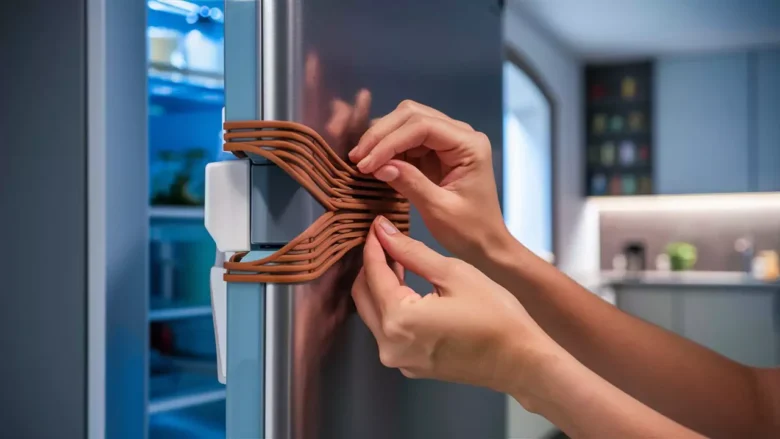How to close credit card without affecting credit score – that’s the burning question keeping you up at night, right?
- Why People Mess This Up (And How You Won’t)
- The Right Way to Close a Credit Card (Step-by-Step)
- Step 1: Do the Math First
- Step 2: Pay Down Your Balances
- Step 3: Use the Card One Last Time
- Step 4: Call the Credit Card Company
- Step 5: Get Everything in Writing
- 💖 You Might Also Like
- When You Should NEVER Close a Credit Card
- Your Oldest Credit Card
- Cards with High Credit Limits
- No Annual Fee Cards
- Cards You’ve Had Disputes With
- Smart Alternatives to Closing Your Card
- Product Change Instead
- Lower the Credit Limit
- How to Monitor Your Credit After Closing
- ✨ More Stories for You
- The Timeline That Actually Works
- What Happens to Your Credit Score (Real Numbers)
- Special Situations and What to Do
- Joint Credit Cards
- Business Credit Cards
- Store Credit Cards
- 🌟 Don't Miss These Posts
- Frequently Asked Questions
- The Bottom Line on How to Close Credit Card Without Affecting Credit Score
Look, I get it.
You’re staring at that credit card you never use anymore.
Maybe it’s got an annual fee that makes you cringe every year.
Or maybe you’ve got too many cards and want to simplify your life.
But here’s the thing – one wrong move and your credit score could tank faster than a lead balloon.
Don’t worry.
I’m going to walk you through exactly how to do this without shooting yourself in the foot.
Why People Mess This Up (And How You Won’t)
Here’s what most people don’t understand:
Your credit score is like a house of cards.
Touch the wrong piece and the whole thing comes crashing down.
When you close a credit card, two things happen:
- Your total available credit drops
- Your credit utilization ratio shoots up
Think of it like this.
You’ve got $10,000 in total credit limits across all your cards.
You’re using $2,000 of it.
That’s a 20% utilization ratio – pretty solid.
Now you close a card with a $3,000 limit.
Suddenly you’ve only got $7,000 in total credit.
But you’re still using that same $2,000.
Now your utilization is 28.6%.
Ouch.
That jump can knock 10-30 points off your credit score.
The Right Way to Close a Credit Card (Step-by-Step)
Step 1: Do the Math First
Before you even think about closing that card, grab a calculator.
Here’s what you need to know:
- Total credit limits across all cards
- Current balances on all cards
- Your utilization ratio (balances ÷ total limits × 100)
If closing the card will push your utilization above 30%, stop right there.
Don’t close it yet.
Step 2: Pay Down Your Balances
This is where most people get lazy.
They want to close the card NOW.
But smart people play the long game.
Pay down your other credit card balances first.
Get your overall utilization below 10% if possible.
Even better – get it to zero.
Step 3: Use the Card One Last Time
Before you close it, make a small purchase.
Buy a pack of gum.
Fill up your gas tank.
Doesn’t matter what.
Then pay it off immediately.
This shows the card company you’re an active customer who pays their bills.
It makes the closure look less suspicious to credit bureaus.
Step 4: Call the Credit Card Company
Don’t do this online.
Call them.
Here’s exactly what to say:
“Hi, I’d like to close my credit card account. Can you confirm that it will be reported as ‘closed by customer’ and not ‘closed by creditor’?”
Get that confirmation.
The difference matters for your credit report.
Step 5: Get Everything in Writing
After the call, send a letter.
Old school, I know.
But it creates a paper trail.
Here’s a simple template:
“Dear [Credit Card Company], This letter confirms my request to close my credit card account ending in [last 4 digits]. Please confirm this account will be reported as ‘closed by customer request’ with a zero balance. Please send written confirmation of this closure.”
Mail it certified mail.
Keep the receipt.
💖 You Might Also Like
When You Should NEVER Close a Credit Card
Some cards are worth keeping forever.
Here’s when to pump the brakes:
Your Oldest Credit Card
This one’s sacred.
Your oldest card is doing heavy lifting for your credit score.
It’s showing creditors you’ve had credit for X number of years.
Close it and your average account age drops.
That hurts your score.
Cards with High Credit Limits
That card with the $15,000 limit you never use?
Keep it.
It’s helping your utilization ratio even when it’s sitting in your drawer.
No Annual Fee Cards
If it’s free, why close it?
Just stick it in a drawer.
Set up one small recurring payment on it.
Netflix subscription, Spotify, whatever.
Set up autopay.
Boom – you’re done.
Cards You’ve Had Disputes With
If you’ve had chargebacks or disputes on a card, keep it open longer.
Closing it too soon after a dispute can look suspicious.
Wait at least 6 months after everything’s resolved.
Smart Alternatives to Closing Your Card
Product Change Instead
Call your card company and ask about product changes.
Maybe you can switch from the annual fee card to the no-fee version.
Same account, different benefits.
Your credit history stays intact.
This is the ninja move most people don’t know about.
Lower the Credit Limit
Don’t want the temptation of a high limit?
Ask them to lower it.
You keep the account open.
You keep your credit history.
But you remove the temptation to overspend.
How to Monitor Your Credit After Closing
Don’t just close the card and forget about it.
Check your credit reports 30-60 days later.
Make sure:
- The account shows “closed by customer”
- The balance is zero
- No weird late payments appeared
- Your credit score didn’t tank
Use Credit Karma, Experian, or annualcreditreport.com.
All free.
No excuses.
✨ More Stories for You
The Timeline That Actually Works
Here’s the realistic timeline for closing a credit card the right way:
Month 1: Do the math, pay down balances on other cards Month 2: Continue paying down balances, get utilization below 30% Month 3: Make final purchase on the card you want to close, pay it off Month 4: Call and close the card, send confirmation letter Month 5: Check credit reports to make sure everything looks right
Yes, it takes 5 months.
No, you can’t rush it without risking your credit score.
What Happens to Your Credit Score (Real Numbers)
Let me give you the straight facts about what to expect:
If you do it right: Your score might drop 5-10 points temporarily, then recover within 2-3 months.
If you mess it up: Your score could drop 30-50 points and take 6+ months to recover.
The difference? Following the steps I just gave you.
Special Situations and What to Do
Joint Credit Cards
If it’s a joint account, both people need to agree to close it.
The primary cardholder usually needs to make the call.
But check with your card company first.
Business Credit Cards
These work differently.
They usually don’t impact your personal credit utilization.
But they still affect your credit history length.
Follow the same steps, but the utilization math doesn’t apply.
Store Credit Cards
Target, Amazon, whatever.
Same rules apply.
But these cards often have lower limits, so the impact is smaller.
Still worth doing it right though.
🌟 Don't Miss These Posts
Frequently Asked Questions
Q: How long after closing a card does it affect my credit score?
A: Usually 30-60 days. That’s when most credit card companies report to the bureaus.
Q: Can I reopen a closed credit card?
A: Sometimes. Call the card company within 30 days of closing. They might reopen it. After that, you’ll probably need to apply fresh.
Q: Should I close all my unused cards?
A: Nope. Keep the old ones with no annual fees. Close the ones costing you money that you don’t use.
Q: Will closing a card remove it from my credit report?
A: Not right away. Closed accounts in good standing stay on your report for 10 years. Closed accounts with missed payments stay for 7 years.
Q: Can I close a card with a balance?
A: You can, but don’t. Pay it off first. Having a balance when you close can hurt your score more.
Q: How many credit cards should I keep open?
A: There’s no magic number. Keep the ones that benefit you. Close the ones costing you money that you don’t use.
The Bottom Line on How to Close Credit Card Without Affecting Credit Score
Here’s the deal.
Closing a credit card doesn’t have to torpedo your credit score.
But it requires planning.
It requires patience.
Most people want to close cards on impulse.
They’re mad about a fee or frustrated with customer service.
Smart people wait.
They plan it out.
They do the math.
They protect their credit score.
Follow these steps and you’ll know exactly how to close credit card without affecting credit score – the right way, every time.
Your future self will thank you when you’re applying for that mortgage or car loan.
























